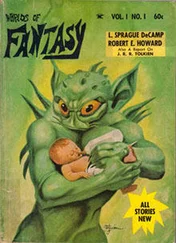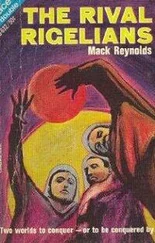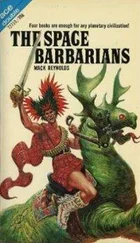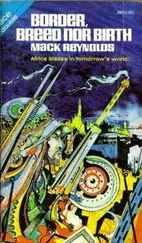Mack Reynolds - The Best Ye Breed
Здесь есть возможность читать онлайн «Mack Reynolds - The Best Ye Breed» весь текст электронной книги совершенно бесплатно (целиком полную версию без сокращений). В некоторых случаях можно слушать аудио, скачать через торрент в формате fb2 и присутствует краткое содержание. Год выпуска: 1978, ISBN: 1978, Издательство: Ace Books, Жанр: Фантастика и фэнтези, на английском языке. Описание произведения, (предисловие) а так же отзывы посетителей доступны на портале библиотеки ЛибКат.
- Название:The Best Ye Breed
- Автор:
- Издательство:Ace Books
- Жанр:
- Год:1978
- ISBN:0-441-05481-1
- Рейтинг книги:4 / 5. Голосов: 1
-
Избранное:Добавить в избранное
- Отзывы:
-
Ваша оценка:
- 80
- 1
- 2
- 3
- 4
- 5
The Best Ye Breed: краткое содержание, описание и аннотация
Предлагаем к чтению аннотацию, описание, краткое содержание или предисловие (зависит от того, что написал сам автор книги «The Best Ye Breed»). Если вы не нашли необходимую информацию о книге — напишите в комментариях, мы постараемся отыскать её.
The Best Ye Breed — читать онлайн бесплатно полную книгу (весь текст) целиком
Ниже представлен текст книги, разбитый по страницам. Система сохранения места последней прочитанной страницы, позволяет с удобством читать онлайн бесплатно книгу «The Best Ye Breed», без необходимости каждый раз заново искать на чём Вы остановились. Поставьте закладку, и сможете в любой момент перейти на страницу, на которой закончили чтение.
Интервал:
Закладка:
Bey looked over at the door, which consisted of a soiled piece of homespun hanging like a curtain. He said, “We’d better take turns as guards tonight. It seems a remote chance, under the prevailing circumstances, but it’s possible that Abd-el-Kader, or some of his lads, might come a-calling. I’ll stand first watch for three hours.”
“Sounds like a good idea,” Homer said. “I’ll stand second watch.”
Bey shook his head. “Nope, not you. No one should see you doing guard duty. You’re El Hassan. I’ll wake Cliff in three hours.”
Cliff said, “Dammit, when we started this outfit why didn’t we pick me as El Hassan, instead of Homer? Hell, I’m bigger than he is.”
Bey snorted and picked up his Tommy-Noiseless and turned toward the door.
Kenny swatted at his arm and snarled, “A mosquito. How in the devil do mosquitos get onto these oases, five hundred miles into the desert?”
Cliff said, “They carry canteens.” He looked about the hut. “This is going to be some night. Sandflies, ticks, fleas, scorpions…”
“Scorpions!” Kenny protested. “I’m allergic to scorpions. Even the little ones make me break out in hives.”
“Well, start breaking then,” Cliff said sourly. “Didn’t you see those Saharan chickens running around the settlement? They keep them to scratch up and eat the sand scorpions. Otherwise these damn oases would be unliveable.”
“You mean they’re liveable now?” Kenny growled. “Hell, I’d rather live in Hoboken.”
Homer, Cliff and Kenny were just beginning to slip from their shoes, preparatory to knocking off, when Bey stuck his head through the door’s curtain and said, ironically, “Visitor.” He added in a lower voice, “He speaks Esperanto, the legal language of El Hassan’s domains.” He stuck a hand through the curtain and tossed a pistol onto the camp table. It had an oversized clip.
Homer looked down at it. “A Tokarev. Polish model,” he said. He looked up at Bey. “Wait a minute, then show him in. This is interesting.”
Homer, Cliff and Kenny shuffled back into their shoes and sat behind the camp table, Homer in the middle.
Bey held the curtain aside and a stranger entered. The three took him in.
The newcomer wore the Libyan tarboosh on his head and the white toga-like barracan , of that country, the ends of which were thrown over the left shoulder, toga-style.
He made the standard Arabic obeisance and said, in halting Esperanto, “I am Hassan el Akhdar of Tripoli and seek audience and to offer my services to El Hassan.”
The three looked at him for a long moment.
Finally, Kenny, to Homer’s left, said, also in Esperanto, “If it would suit you, make you more at your ease, you may address El Hassan in Russian.”
The other couldn’t help stare at him. “Russian!”
Kenny sighed and said, “You say you are from Tripoli but you wear the barracan prevalent in the Wadi Rumia of the Gebel country of the Fezzan. On top of which, you speak Esperanto, although admittedly, haltingly, as though you have been given a crash course. There are no scholars in the Gebel. In fact, I doubt if there’s anybody who can read in the Gebel. As one who has in his time studied anthropology, I would say that in spite of your complexion, which resembles that of an Ethiopian Hamitic tribesman, your skull shape leads me to suggest that you are either of Russian or Finnish ancestry. I can think of no reasons why the Finns would be interested in El Hassan.”
Colonel Serge Sverdlov took a deep breath, even as he inwardly cursed the inefficiency of the KGB department in charge of his cover. They should have come up with something else, obviously knowing practically nothing about the interior of North Africa.
However, his expression didn’t change. He said, in Russian, “Then El Hassan speaks Russian? I am admittedly surprised.”
Cliff Jackson said, offhand. “El Hassan speaks every language on Earth—of course.”
The colonel stared at him. Was the man a clown, to expect him to believe that?
But it was then that Homer Crawford spoke up for the first time. He said mildly, in Russian, “I note that you have the Leningrad accent. Please forgive me if I am hesitant in your idiom which is quite picturesque.”
Indeed, Homer Crawford was quite a linguist; aside from an imposing selection of Sahara tongues, including various lingua franca such as Swahili, Wolof of Senegal and Songhoi of the Niger bend, he also had excellent French and Spanish and a smattering of German. But, as a coincidence in this meeting, Russian—as Cliff knew—had especially intrigued him in college and he had taken four years of it. One of his favorite instructors had been from Leningrad.
The other was obviously taken aback.
Homer said politely, “Please draw up the other camp chair, there, and tell us that which you desire. We have had various other representatives from the Soviet Complex attend on us, but, admittedly, none so interestingly attired and disguised.”
Still cursing inwardly, Serge Sverdlov drew up the indicated folding chair. He’d probably be roasted for this fiasco, back in Moscow, but what had the fools expected, from Minister Kliment Blagonravov right on down? And especially Menzhinsky, in Tangier, who was supposedly an expert on North Africa. Though, admittedly, how in the name of Lenin could he be expected to know how they dressed in the Wadi Rumia of the Gebel country of the Fezzan, such information as was seemingly held in detail by El Hassan’s immediate group?
His cover was obviously already blown to the skies. All he could do was improvise.
He looked at Cliff and Kenny, “Am I to assume that these gentlemen are Clifford Jackson and Kenneth Ballalou, and that your guard is the Tuareg-American Bey-ag-Akhamouk?”
Homer eyed him for a moment, then nodded. “You may.”
“Then I suggest that we speak English, since I assume that all here are not as conversant with Russian as you prove yourself to be.”
“Very well,” Homer said in English. “And now, to the point. What is it that you desire of El Hassan?”
Sverdlov said, “To serve him. To join his followers and do all in my power, and I have considerable resources at my command, to further his aims.”
Homer eyed him for another long unspeaking moment, and finally said, “Our aims are not only the assimilation of such presently reactionarily ruled lands as Morocco with its feudalistic, absolute monarchy, but also the Marxist Algeria and Libya, among others.”
The Russian nodded. “We know. And also the assimilation of the dozen and one military dictatorships thoughout North and Central Africa.”
Kenny said evenly, “You don’t deny that you are from the KGB?”
“No. I have been sent from Moscow to forward the program of El Hassan. We are interested in progress, particularly industrial progress, throughout the world. We feel that El Hassan will accomplish this more quickly than the pseudo-socialistic regimes in such countries as Algeria.”
Homer nodded wearily, “Your late colleagues, Abe Baker and Anton, put over the same general idea. But your eventual goal, your long view, involves, of course, your attempting to direct Ifriqiyah, as we call it, to the Communist camp.”
Serge Sverdlov hesitated before meeting that full on, but he realized that this was no time, nor these the men, for ambiguity. He nodded agreement. “But that is far in the future and the future will take care of itself. Meanwhile, we support the program of El Hassan.”
Cliff snorted.
But Homer said, “Just what form could this offered support take?”
The Russian bent forward. “We could supply you with the most modern arms, arms that would enable you to overrun such nations as Morocco, Algeria, Libya, Tunisia, Senegal, at will. We could come to your assistance with our intelligence services, disclosing to you the attempts being planned by your enemies.”
Читать дальшеИнтервал:
Закладка:
Похожие книги на «The Best Ye Breed»
Представляем Вашему вниманию похожие книги на «The Best Ye Breed» списком для выбора. Мы отобрали схожую по названию и смыслу литературу в надежде предоставить читателям больше вариантов отыскать новые, интересные, ещё непрочитанные произведения.
Обсуждение, отзывы о книге «The Best Ye Breed» и просто собственные мнения читателей. Оставьте ваши комментарии, напишите, что Вы думаете о произведении, его смысле или главных героях. Укажите что конкретно понравилось, а что нет, и почему Вы так считаете.












